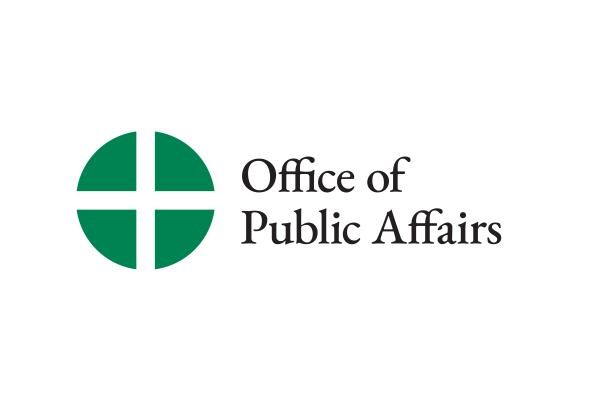Care for God’s Creation Topic of United Methodist-Catholic Dialogue as World Leaders Gathered to Discuss Climate Change
WASHINGTON—As leaders of nations and scientists were gathering in Copenhagen to figure out ways of reducing greenhouse gas emissions that have been linked to global warming, representatives from the United Methodist Church (UMC) and the United States Conference of Catholic Bishops (USCCB) held their
WASHINGTON—As leaders of nations and scientists were gathering in Copenhagen to figure out ways of reducing greenhouse gas emissions that have been linked to global warming, representatives from the United Methodist Church (UMC) and the United States Conference of Catholic Bishops (USCCB) held their third meeting to discuss Christian responsibility in caring for God’s creation.
The dialogue between the UMC and the USCCB dates back to 1966 and has covered a broad range of theological and moral topics. In Round 7 the two churches are focusing on caring for God’s creation from a Eucharistic perspective, a theme that Bishop William S. Skylstad of Spokane, Washington, Catholic co-chair, views as holding out opportunities for Catholics, Protestants and Orthodox Christians to “witness together in solidarity and common responsibility.” Bishop Skylstad was among the twelve bishops of Oregon and Washington State who issued the 2001 Pastoral Letter, “The Columbia River Watershed: Caring for Creation and the Common Good.” The letter has been a reference point for the dialogue.
“The beautiful natural world is a loving gift from God,” said United Methodist Bishop Timothy Whitaker, co-chair of the dialogue, in an opening presentation to the dialogue which met December 15-17 at St. Paul’s College in Washington D.C. Whitaker, who is bishop of the UMC Florida Conference, drew on the writings of Methodism’s founder John Wesley in showing how social holiness belongs to the basic call to discipleship with Jesus Christ.
“Through social holiness, we make ourselves channels of God’s blessing to the world—a blessing that extends to the renewal of all creation,” Whitaker said.
Against the backdrop of the Copenhagen summit, Christian leaders from around the globe have been speaking out about the need to link combating environmental degradation with economic development. On December 16 the Vatican released Pope Benedict XVI’s World Day of Peace Message (January 1, 2010), whose theme this year is “If you want to cultivate peace, then protect creation.” Earlier this fall, Greek Orthodox Patriarch Bartholomew I visited the United States and spoke at a number of venues on the spiritual renewal needed around the world to redress the destructive effects of deforestation and uncontrolled fossil-fuel emissions.
The recent United Methodist-Catholic dialogue session covered a range of topics that will help the participants draft a final statement on the covenantal relationship that exists between Christian worshipers and the natural environment. Members also are exploring ways to develop an instrument on faith and ecology for adult education to be used in local congregations.
Catholic presenters included Dr. Angela Christman, of Loyola University, Baltimore, who examined texts of the ancient Greek and Latin Fathers that make the connection between Eucharist and creation; and Father Drew Christiansen, S.J., Editor of America Magazine, who assessed the mystical theology of Jesuit scientist Teilhard de Chardin, with special emphasis on his Mass on the World.
United Methodists looked to the Weslyan tradition and more recent UMC statements to draw connections between the sacramental perspective and environmental stewardship. Dr. Karen B. Westerfield-Tucker, of Boston University, Mass., spoke on the piety of John Wesley, whose hymns often invoke thanksgiving to God for the works of creation; Dr. Edgardo Colón-Emeric, of Duke University Divinity School in Durham, North Carolina, compared Wesley’s doctrine of sanctification (holiness) with St. Thomas Aquinas’ theology of the virtues; and Dr. Sondra Wheeler, of Wesley Theological Seminary in Washington, assessed ethical authority in the United Methodist Church, with a particular emphasis on environmental teachings and advocacy.
Other participants in the dialogue included Father James Massa, executive director of the Secretariat for Ecumenical and Interreligious Affairs at USCCB; Dr. John Hart of Boston University; and Rev. Betty Gamble, acting ecumenical officer for the UMC, who also served as secretary for the meeting.
The next session of the dialogue is scheduled for June 28-30, 2010 at St. Paul’s College in Washington.

